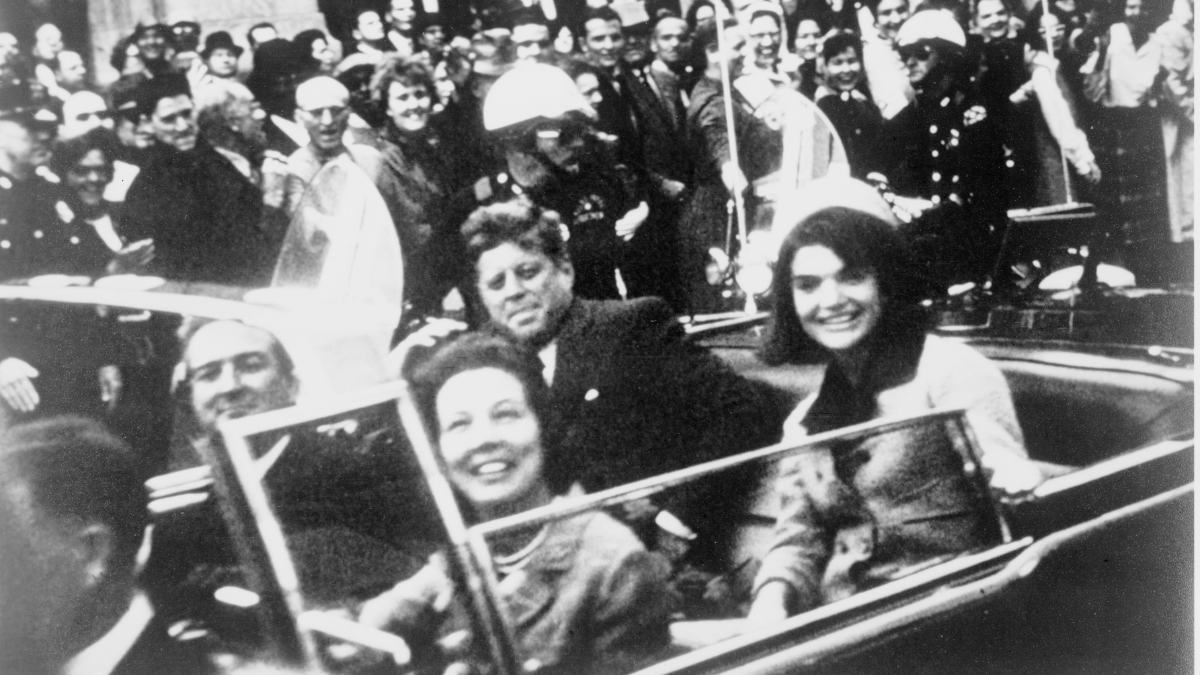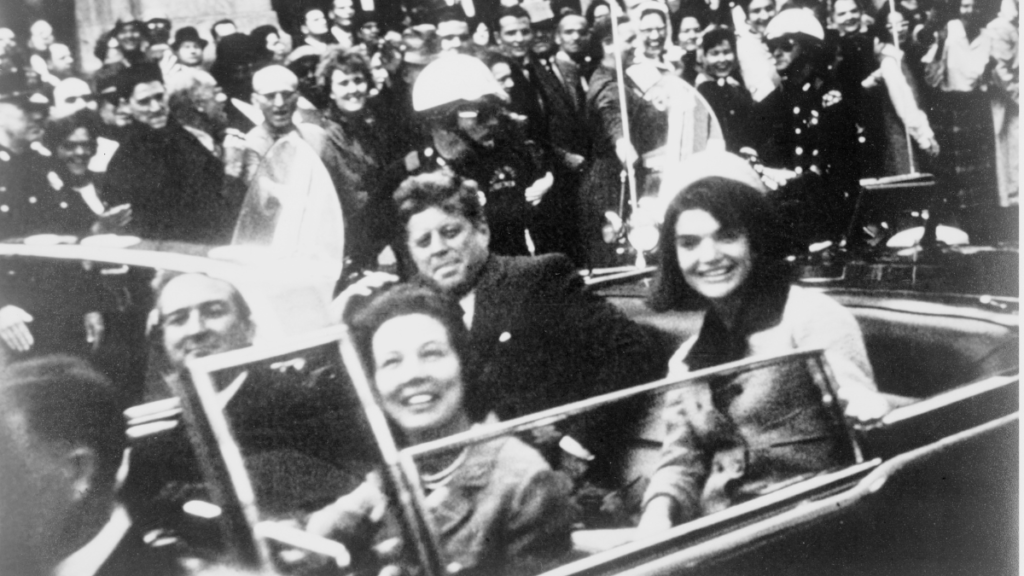Originally Authored at TheFederalist.com

Early in his third presidential campaign, Donald Trump vowed to establish a “Truth and Reconciliation Commission” to “declassify and publish all documents on Deep State spying, censorship, and abuses of power.” The phrase “Truth and Reconciliation” recalls bodies established to investigate abuses by toppled Communist regimes such as East Germany’s, or the former apartheid government of South Africa. The framing suggests that Trump views the entire past decade, from “Russiagate” to the “lawfare” cases entangling himself and his advisers, as the fruits of an illegitimate regime that threw the rule of law out the window.
This interpretation of recent history, surely viewed as partisan by Trump’s opponents, will be tested by the facts, once they become better known and documented. But the president-elect’s suggestion that the workings of the U.S. government must be more transparent is long overdue.
According to Sens. Gary Peters, D-Mich., and John Cornyn, R-Texas, who introduced a bipartisan “Classification Reform for Transparency Act” last July, the U.S. government spends $18 billion every year classifying information. “Over-classification,” they argue, “undermines national security by limiting information sharing between federal agencies,” as in the notorious intelligence failures before 9/11. American taxpayers, we might add, fork over billions every year in order to help their government hide information from them.
Like so many now-encrusted practices in Washington, the classification monster is of dubious constitutional provenance, born of the metastasizing of the U.S. security apparatus during the Cold War. Just as foreign military interventions denied taxpayers a genuine “peace dividend” after the fall of the USSR in 1991, the intelligence agencies created to oppose the Soviet threat, instead of disbanding after its disappearance, spread their tentacles ever wider.
In 2016, we were told that no fewer than “17 U.S. intelligence agencies” agreed on alleged Russian election interference — apparently an undercount, as the website of the Director of National Intelligence now lists 18. This averages out to a neat $1 billion spent annually by each of these 18 agencies to classify about three million documents apiece. Are there really that many secrets worth preserving from the public?
None of this is to reckon with the enormous back catalog of older documents still classified by the U.S. government, some nearly a century old. The CIA claims to have released the last classified World War I documents, but millions of World War II files remain closed. While researching my book Stalin’s War, I discovered that many of the files on Lend-Lease aid to the USSR were declassified only in the 1970s. While I was not surprised, owing to long experience with Russian archival restrictions, that Soviet files concerning the scale of American military and material aid are tightly guarded — undermining as they do cherished myths about the “Great Patriotic War” (the Russian government recently shut down its only Lend-Lease museum) — I could not fathom why information about U.S. generosity had been classified in Washington.
Frustrating as Russia’s recent nationalist turn and the shutting off of archival access has been for Western historians, most of us expect secrecy from Moscow. But we have a right to expect better from our own government. True, U.S. citizens have the right, under the Freedom of Information Act (FOIA) passed in 1967, to request access to classified government files — but the government can reject these requests under nine “exemption categories,” covering everything from reasonable privacy concerns (bank and medical data) and trade secrets to open-ended concerns about “national security” and nebulous “legal privileges.”
With controversial matters such as the JFK assassination, U.S. government stonewalling has been so egregious that Congress stepped in, passing a law in 1992 requiring that all files be declassified by 2017. Although then-President Trump vowed to comply and released 53,000 new files to the public, he postponed further releases, citing “identifiable national security, law enforcement, and foreign affairs concerns.” President Biden released 17,000 more files, but made a similar statement in 2023 justifying continued classification.
During the 2024 campaign, Robert F. Kennedy Jr. unambiguously called for the last JFK assassination files to be released, and President-elect Trump has again vowed to do so, mostly recently in an interview with Joe Rogan. The National Archives claims that “99% of the Kennedy assassination files” have been released, but in view of a bipartisan consensus dating back decades, it is astonishing that the last 1 percent are still secret.
What is the U.S. government hiding? It is precisely this kind of overzealous secrecy that fuels the “conspiracy theories” the academic establishment tells us to avoid, from “grassy knoll” scenarios in the JFK assassination, to accusations that President Roosevelt had foreknowledge of the Pearl Harbor attack, to more recent controversies surrounding redactions in the 9/11 Commission Report. Perhaps in the last case, recency justifies a certain caution (though balanced against demands of the 9/11 families for justice and closure). But what live source, or sensitive military secret, could possibly be exposed in JFK assassination documents dating to 1963 or earlier? From the Second World War, which ended 79 years ago? Or Watergate, the main events of which transpired over 50 years ago?
It is high time for a serious overhaul of classification procedures, with the appointment of a presidential “task force” of the kind suggested in the Classification Reform for Transparency Act (which still awaits passage). President Obama’s Executive Order 13526 of 2009 limited classification times for ordinary records to 10 years and established a cap of 25 years for more sensitive files. But the nine telltale “exemptions” were left in place, allowing security agencies to continue stonewalling — while adding massively to the vault of our nation’s secrets.
If we streamline exemptions to a few simple categories such as “sources at risk,” private data of living citizens, and military-technological and trade secrets and shorten classification to a single presidential term of four years (e.g., to prevent an opposition party from mining recent presidential files for use in election campaigns), we could exponentially reduce the expense of classification going forward and restore public trust in Washington, D.C. — not least by putting a healthy fear into our public servants that they cannot abuse their powers and get away with it.
Meanwhile, why not declassify all U.S. government files more than 25 years old? If a strict exemption threshold is met, government agencies could still redact personal data or trade or military secrets — but the files themselves should be opened. Rather than require citizens and historians to pry information out of Washington via FOIA applications, the burden of classification should be placed where it belongs — on the government.
Files should be open to the public unless otherwise specified, not secret by default. We the people have a right to know what our government does in our name, and to know our own history.
